EQUS seminar series: Joe Goodwin
Speaker: Joe Goodwin
Title: Towards scalable networked quantum computing with trapped ions
Abstract: Among the diverse and growing range of proposed platforms for quantum computing, trapped-ion qubits retain a healthy lead in gate fidelities and coherence time, while recent developments have also proven their compatibility with remote generation of high-fidelity entanglement, mediated by single photons. Although the largest ion-trap computers to date consist of some tens of qubits, the errors in small devices are low and their sources well understood and largely technical in origin. Combined with the potential for distributed computation across a large, high-connectivity network of simple processor modules, the route to scalability appears increasingly clear.
A recent highlight of our work in Oxford has been the demonstration of an elementary quantum network capable of producing entanglement between remote pairs of strontium-ion qubits at unprecedented rates and fidelities. In this talk, I will briefly discuss this experiment, and some recent examples of the interesting experiments made possible by even this simple two-node network. I will also highlight the limitations of our current approach, most notably the bottleneck in entanglement rate while using refractive optics owing to ion-to-fibre coupling efficiency limits at the roughly 10% level.
I will then discuss our progress in overcoming these limitations in the planning of our second-generation network, which will use optical cavities to enhance and control the emission of the network ions. This approach has the potential for near-unit collection efficiencies and photonic entanglement rates approaching those of local, phonon-mediated two-qubit gates, while offering a network photon and encoding scheme amenable to high-fidelity, low-loss operation over longer ranges.
While building this network, we are addressing several other important challenges on the route to scalability by developing novel approaches to trap fabrication, integration of experimental subsystems and ultrahigh-vacuum packaging. With this shift in our approach to system engineering, foregoing reconfigurable experiments hand-built from off-the-shelf components, for simple, reliable and reproducible processor designs, we aim to demonstrate the feasibility of a much larger, networked quantum computer capable of scaling to thousands of qubits.
Bio: Dr Joe Goodwin is a Senior Researcher in the Ion Trap Quantum Computing group at the University of Oxford. He received a PhD from Imperial College London in 2015, where his research in the Thompson/Segal group focused on ground-state cooling in Penning traps and the development of novel many-qubit entangling gates. He joined the Oxford group in 2016, where he has since worked on topics ranging from cryogenic ion trap design for near-field-microwave-driven quantum logic, to randomised benchmarking of qubit decoherence dynamics, and high-fidelity remote entanglement generation on an elementary, two-node quantum network. He currently leads teams within Oxford and the UK-wide Quantum Computing and Simulation Hub focusing on cavity-enhanced photon collection for faster quantum networks, and coordinates several industrial collaborations aiming to develop methods for scalable ion trap node manufacture and operation.
Many thanks to Tim Wohlers-Reichel for organising.
Recordings of past seminars are available to EQUS members via the Hub (requires login).
Major funding support

The Australian Research Council Centre of Excellence for Engineered Quantum Systems (EQUS) acknowledges the Traditional Owners of Country throughout Australia and their continuing connection to lands, waters and communities. We pay our respects to Aboriginal and Torres Strait Islander cultures and to Elders past and present.


